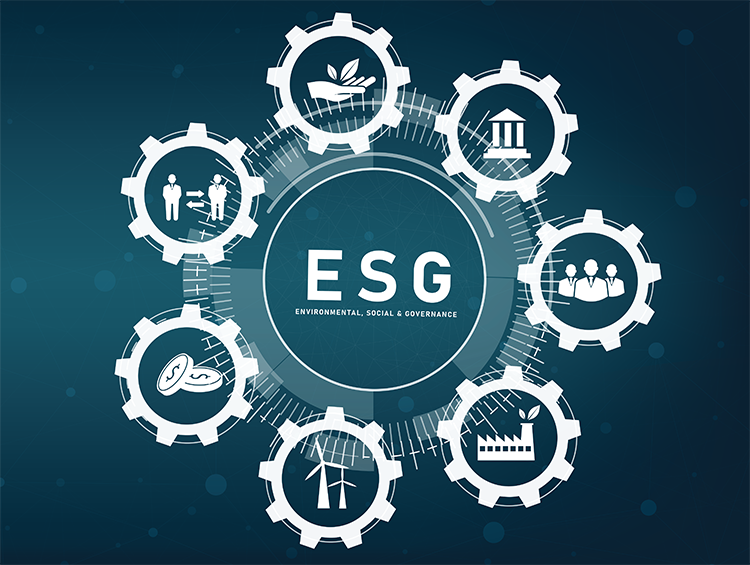RE projects with poor ESG credentials will increasingly find it difficult to access finance
A new report from Aeon Investments, the London based credit-focused investment company, predicts the gulf between the financing available to real estate projects at either end of the ESG scale is set to rapidly widen. It says those projects with poor ESG credentials will increasingly face issues accessing finance, resulting in limited options and punitive borrowing terms in the medium term.
The report, entitled ‘ESG in Commercial Real Estate Lending’ says lenders are now at the stage of being able to make the shift to rewarding exemplary projects with better terms, rather than just penalising those that clearly don’t follow sustainability principles. However, it says the real estate lending industry needs to do more by placing a greater focus on outcomes beyond performance where the returns to society, the owner, lender, client and the end investor are all considered equally important.
Ben Churchill - Chief Operating Officer Aeon Investments said: “The lending industry is gradually shifting towards rewarding a ‘green premium’ when financing ESG-led real estate projects. To date, with insufficient evidence to support ESG assets outperforming the rest of the market, the lending industry has largely erred towards imposing stricter borrowing terms on those projects which clearly display limited ESG benefits, rather than rewarding those that do with better lending terms. This ‘brown discount’ approach is now changing with many lenders actively embedding the Loan Market Association’s (LMA) Green and Sustainability-linked Lending Principles in their lending policies, and some taking this further to develop specific green products, enabling them to directly offer better financing options to borrowers whose assets meet ESG principles – a ‘green premium’.”
Real estate lending – best practice
Aeon Investment’s new report says “The ESG policy of real estate lenders should be based on four principles: awareness, integration, engagement and advocacy.”
Awareness of environmental and health and safety factors has always been an important part of due diligence. Such assessments have over the years uncovered many lingering risks, from improper or blocked fire escapes to the presence of asbestos and other harmful materials. Most lenders in the market include these assessments in their investment decision, though many will treat this merely as an exclusion mechanism. The report says proactive lenders push ahead of the pack by having ongoing engagement with borrowers through the life of the loans they originate. Harmful materials require a management or removal programme, social housing requires monitoring the delivery, and flood risk for example, requires a mitigation strategy from the borrower.
The report says lenders can work with borrowers to add value to the property by implementing ESG improvements such as:
Environmental: Increased energy efficiency at properties through the use of clean technology, building optimisation techniques, energy-efficient retrofits and sustainable materials, which ultimately reduce costs and carbon footprint. Besides focus on addressing operational carbon, lenders and borrowers need to gear towards tackling embodied carbon emissions as part of a whole lifecycle approach to carbon reduction.
Social: Heightened focus on social considerations that ultimately improve a property’s brand and amenities, such as responsible vendor contracting, local community engagement, and the addition of quality of life-oriented amenities
Governance: Increased transparency into the amount and type of ESG projects within the portfolio and tailored energy cost and usage tracking techniques
Aeon Investments says the implementation of ESG measures should begin at the sourcing stage and continue throughout the lifecycle of an investment until disposition. To align both value creation and ESG considerations, lenders should conduct an initial review for investment opportunities evaluating not only the investment’s fundamental merits, but also its ESG suitability. Pursuant to integrating and tracking ESG metrics within the evaluation and risk management processes, an ESG scorecard can be devised to evaluate, monitor, and update borrower and asset specific ESG criteria over the course of the loan.
The scorecard provides a useful pathway through ‘Plan Do-Check-Act’ stages of deal lifecycle and demonstrates complete ESG integration into lender’s business processes. Ideally the scorecard should utilise a mix of quantitative and qualitative metrics, using third-party appraisal reports, where available, and further complemented by detailed sustainability information questionnaire. Asset attributes that anchor the ESG scorecard include energy/water consumption and ratings (EPC), flood assessment reports, green building certifications (BREEAM etc.), onsite renewable energy, proximity to multi-modal transit, adherence to industry standards, wider community benefits, social impact, living wage commitment, asset improvement plan, governance standards. Aeon is currently utilising this scorecard and positive screening methodology for its £650m commercial real estate CLO programme.
Khalid Khan - Managing Director said: “We believe that ultimately asset quality, market position and operating efficiency play a significant part in protecting collateral value, minimising loan default risk and maintaining portfolio yields. In particular, property condition assessments and valuation assignments that specifically incorporate sustainability attributes during due diligence process help uncover hidden risks while providing greater decision context for to support risk analysis, loan decisions and downstream loan portfolio monitoring.
“There is an emerging trend towards sophisticated lenders deepening their ESG due diligence integration to assert more control to achieve collateral-based outcomes, and we see this increasing rapidly.”
For a free copy of Aeon Investment’s new report ‘ESG in Commercial Real Estate Lending’, visit www.aeoninvestments.com.









